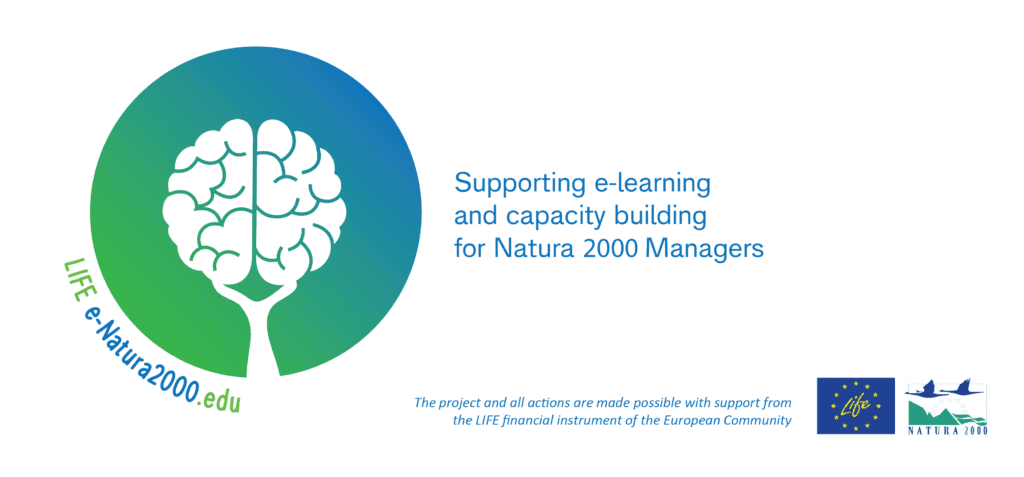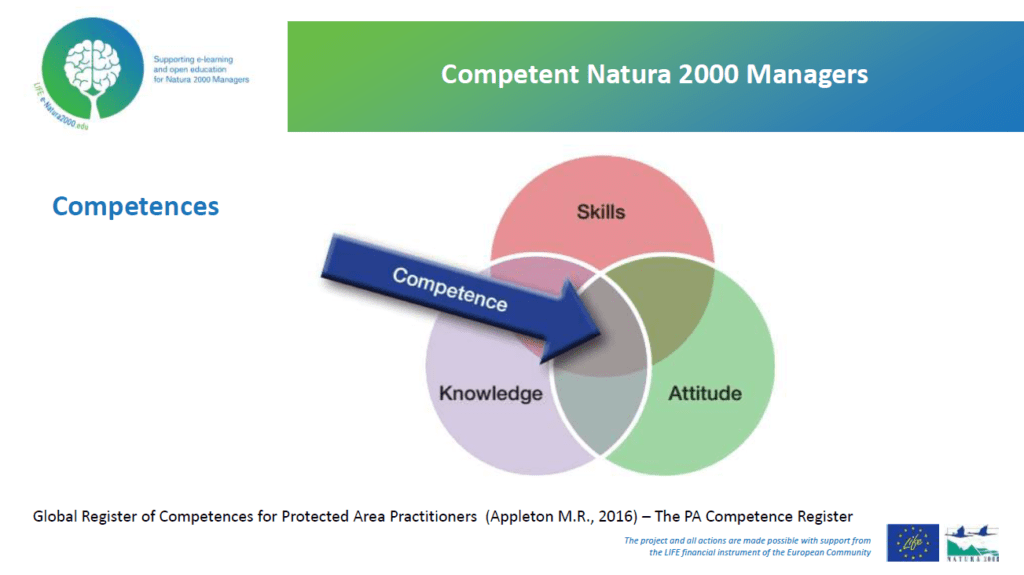New ways for building professional capacities: needs & tools
As part of the EUROPARC Conference 2018, a dedicated workshop was organised for the LIFE Preparatory project, ‘Supporting e-learning and capacity building for Natura 2000 managers’. Seven participants from six countries worked together to discuss what makes an effective Natura 2000 manager. Based on participants’ experiences of capacity building we considered: who are Natura 2000 managers? What do they need to know and be able to do? And, how do they learn?
Who are Natura 2000 site managers?
Natura 2000 managers and protected area practitioners work on the ‘front-line’ of nature conservation and sustainable development. From the many possible different ‘types’ of Natura 2000 manager, the following are probably most recognisable: Site or area based nature conservation professionals; Nature reserve or park managers; Rangers; Specialist advisers and ecologists; Volunteers; Trainees/ students; Contractors (for example, involved in construction activities); Farmers and private landowners.
What do they need to know and be able to do?
The range of skills and knowledge required are extensive and vary from job to job. Taking into account the often technical demands of Natura 2000, the following topics can be identified as benefitting from specific capacity building initiatives and support:
- Provision of accurate and meaningful information – what Natura 2000 is and why it is necessary & important;
- Conservation management planning;
- Species & habitat management;
- Ecological assessment & monitoring;
- Habitat restoration;
- Clarification about legally required management priorities;
- Steps to improve technical site management;
- Enforcement with an emphasis on positive engagement strategies and approaches;
- Site interpretation.
Apart from being nature conservation specialists, Natura 2000 site managers are managers of people, as well as natural and cultural resources.
In order to achieve conservation needs and priorities often within complex settings, effective management relies on good team-working. Also, it involves working together with different nature conservation professionals, but also crucially multiple stakeholders, often from non-technical backgrounds. Most importantly of all, therefore, effective management of protected areas, and certainly Natura 2000 sites, requires and benefits from the positive engagement of different types of people.
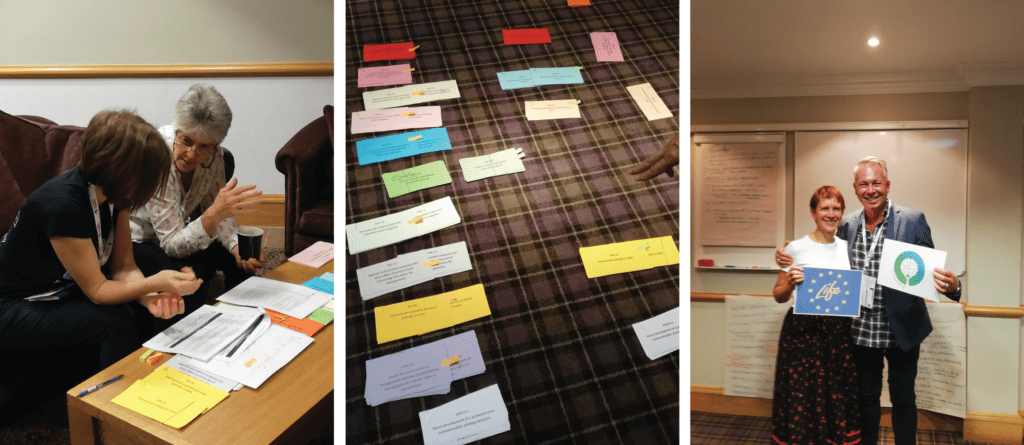
“New ways for building professional capacities” workshop at EUROPARC Conference 2018
Building professional capacities: what learning tools work best?
Protected area professionals and Natura 2000 managers benefit most from the following tools and methods:
- “Tell, show, do” approaches – nature conservation professionals are ‘hands-on’!
- Social media especially when that is ‘clean’, imaginative and stimulating – i.e. developed in such a way that avoids unnecessary clutter;
- Face-to-face learning, particularly as that is valuable in the development of effective ‘people skills’;
- Demonstration videos – especially where humour is combined with learning.
In terms of practical tools and how these could be used, the following are worth highlighting:
- Role play scenarios, especially useful in relation to effective conflict management;
- Interactive case studies, for example, in the form of PowerPoint slides – learning from different scenarios;
- Practical techniques – for example, different types of ice-breakers, how to use prompt cards, how to develop useful infographics;
- On-line / web-based tools which support peer-to-peer networking and knowledge transfers – the following were specifically identified as being useful:
- Dedicated platforms to support bilateral or multi-lateral ‘twinning’ to enable people to discuss common problems and develop shared solutions.
With respect to all learning tools, methods and approaches, workshop participants highlighted that they must be inclusive, respecting that people come from different backgrounds and will have different starting points. They should also appeal across generations and appeal to people of all ages.
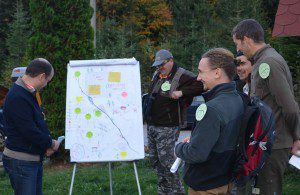
Capacity Building in Europe – Ranger training in Romania © ProPark Foundation for Protected Areas
What are the most common capacity building needs?
Taking into account the complex contexts often involved, greater attention for capacity building is required generally. In terms of practical technical skills required for Natura 2000, information gaps and capacity building needs were identified in the following areas:
- Setting effective nature conservation objectives;
- Natura 2000 monitoring and survey practices – the potential to use new technologies in this area, such as drones and spatial photography were noted;
- Wildlife management;
- Habitat restoration techniques and determination of priority conservation measures.
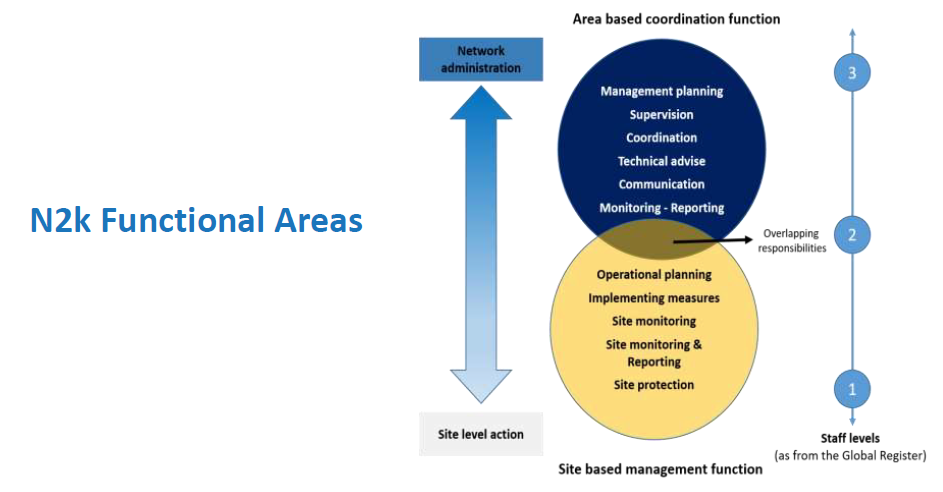
Functional Areas for Natura 2000 Managers – Click on the image to download the presentation “Competent Natura 2000 Managers “
Building “Soft Skills”
Natura 2000 is a network of sites but also essentially a network of people: therefore, interpersonal skills and competencies require specific attention. Capacity building in what are often called ‘soft skills’ is fundamental to their work – these include being able to manage, engage and motivate people, either within teams or within local communities. Specific capacity building needs were identified in the following areas:
- Communication & collaboration;
- Awareness raising & education (outreach);
- Community engagement / ‘animation territoriale’ – i.e. development and facilitation of inclusive participatory processes;
- Project management;
- Negotiation – dealing with diverse stakeholders, on-site and around site;
- Effective conflict resolution techniques and strategies;
- Effective definition of team roles and practical approaches to support team building;
Finally, linked to the theme of the 2018 EUROPARC Conference, ‘Inspired by the next generation’, there are significant opportunities to positively engage young people in ways that support the development of transferrable skills – for example, this includes building upon young peoples’ skills with new (digital) technologies whilst bringing them into contact with site managers who have practical experience.
Competence is at the crossroads between Knowledge, Skills and Attitude.
Looking to the future!
EUROPARC will continue to play an essential role, especially in facilitating networking that supports practical capacity building. Networking in ways that enable and support information sharing and knowledge transfer, exposure to existing best practice experiences, access to new learning techniques and practical insights, are invaluable.
We recognise the pressures on time and also financial resources: whilst face-to-face networking opportunities are highly regarded and extremely valuable, EUROPARC’s experience with and commitment to developing new and innovative online/ remote learning methods will be further expanded in future.
Download the workshop presentation: New ways for building professional capacities
Capacity building actions which EUROPARC can facilitate and help to promote include:
- Helping to identify hosts (for networking events);
- Providing practical support and technical assistance where possible;
- Stimulate more interaction across the EUROPARC network – mix everyone up;
- Continue to support exchange of best practices, especially in relation to community engagement;
- Development of solution-based face-to-face and online learning activities;
- Encourage interactivity and ask people to test what works or does not work in practice – generate and positively use feedback.
Finally, we are keen to explore ways to attach some forms of professional accreditation for capacity building actions. Whilst recognising that this may be more complex and longer-term, this could be an important way to advance protected areas managers’ and Natura 2000 managers’ professional development needs.
About the project
LIFE e-Natura2000.edu is a three-year project that explores the potential of building new approaches and learning methods to improve knowledge and build capacity amongst Natura 2000 Managers in both public and private land, across the EU. The project will test a mix of innovative e-learning tools and methods to access information and connect peers: throughout, the project will focus on what managers need to know and be able to do. We will engage a representative range of managers across the EU – site based staff, private landowners, PA staff, rangers etc. – and work with a core group of 60 project participants & 500 other ‘casual users’.
From 2019, three core modules and ‘blended learning’ experiences will be developed and rolled-out – on offer will be a mix of workshops, webinars, interactive online materials, demonstration video diaries, and a new web-based hub.
![]()
The project is led by EUROPARC with the support of six partners: ProPark, FUNGOBE Spain, the TESAF Department of the University of Padova, the European Landowners Organisation, Rangers Campus and the Kullaberg Nature Reserve. Taking a competence based approach, it aims to enable peers to connect and learn about what managers need to know and be able to do. The project will analyse capacity building needs and make available new ways to access information about the multiple skills required for Natura 2000 management and policy implementation.
